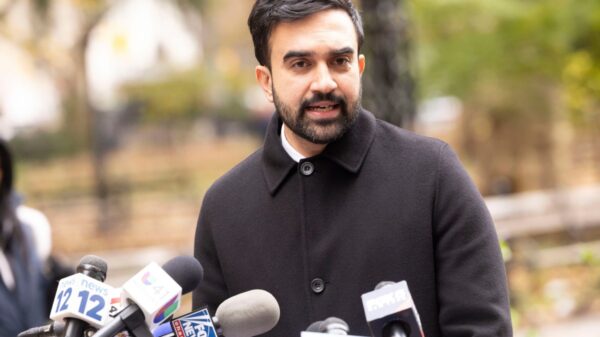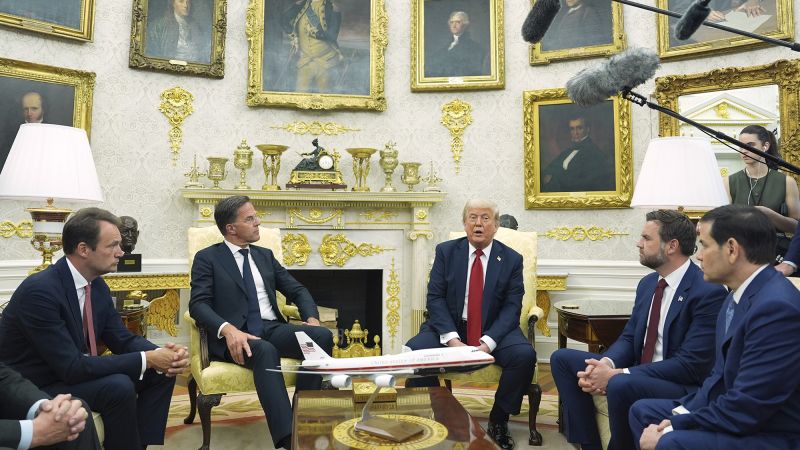President Donald Trump announced a significant shift in his stance on Ukraine during a meeting with NATO Secretary General Mark Rutte on March 4, 2024. Trump declared that the United States will send military weapons to Ukraine to bolster its defense against Russia’s ongoing invasion. The announcement comes with a new ultimatum for Russia, imposing a 50-day deadline for a peace agreement, after which the U.S. will implement trade consequences, including secondary sanctions.
Republican leaders welcomed Trump’s announcement, with Senator Lindsey Graham of South Carolina calling it a pivotal moment. Graham characterized the announcement as a “turning point,” suggesting that Trump’s approach could alter the dynamics of Vladimir Putin‘s aggression. This marks a notable change for Trump, who had previously shown a more lenient attitude toward Russia and its leader.
The political landscape for Trump is complex. His support among the MAGA base is wavering, particularly following criticism regarding his administration’s handling of sensitive files related to Jeffrey Epstein. In recent years, the MAGA faction has increasingly distanced itself from supporting Ukraine, which raises the question of whether Trump’s newfound assertiveness will resonate with his supporters.
Polling data indicates that a majority of Republicans are skeptical about U.S. involvement in Ukraine. A March 2024 poll from Marquette University Law School revealed that 59% of Republicans believe the U.S. is doing “too much” to aid Ukraine. Similarly, a Gallup survey found that 56% of Republicans share this sentiment, while only about one in ten expressed a desire for increased U.S. support.
The sentiment against U.S. involvement is further echoed in a poll from Reuters and Ipsos, which showed that 63% of Republicans oppose continued military and financial assistance to Ukraine. This skepticism appears rooted in a belief that the conflict does not significantly impact U.S. interests. According to a Pew Research Center survey from March, only 25% of Republican-leaning Americans expressed deep concern about a potential Russian victory over Ukraine.
Despite this skepticism, there are indications that Republican attitudes could shift. The Reuters poll noted that only 17% of Republicans “strongly” agreed that Ukraine’s issues are none of U.S. business. A significant portion of those opposed to U.S. support may be open to changing their views, especially if Trump effectively communicates the stakes involved.
Trump has positioned his criticism of Putin as a response to the Russian leader’s unreliability in negotiations. He denounced Putin’s recent actions, calling them “bullshit,” and highlighted the failure of the Russian president to engage seriously in peace talks. This argument could resonate with some Republicans, especially as concerns about Putin’s commitment to peace remain prevalent.
Polling data reveals that only 27% of Republicans believe Putin genuinely seeks a lasting peace with Ukraine. Additionally, 48% of Republicans are wary that any peace deal may favor Russia, and 69% fear that Russia would violate the terms of any agreement. These sentiments suggest an underlying skepticism of Putin, which Trump could leverage to rally support among his base.
While many Republicans may be open to reconsidering their stance on Ukraine, some segments of Trump’s supporters have developed a deep-rooted skepticism toward Ukraine and its president, Volodymyr Zelensky. Disinformation campaigns have contributed to this sentiment, and incidents such as Zelensky’s meeting with Trump in February have fueled negative perceptions among certain MAGA supporters.
As Trump firmly aligns himself with Ukraine, he faces a challenging task in reconciling the views of a significant portion of his base with his new approach. The outcome of this political maneuvering remains to be seen, with the potential for shifts in public opinion as the situation evolves.






































































